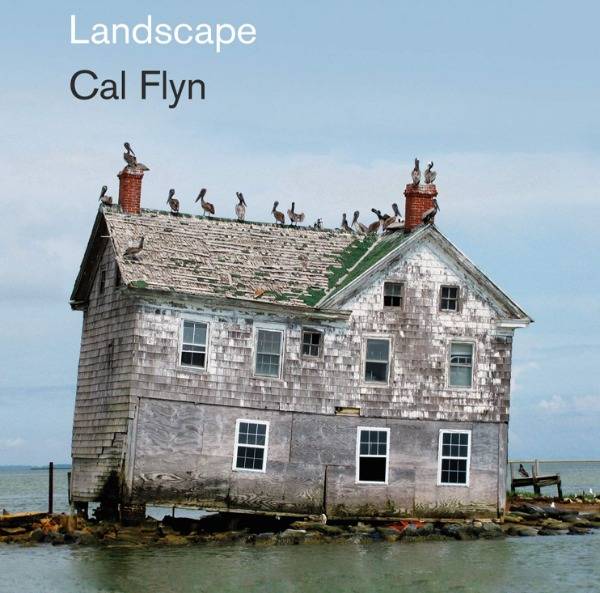For what it is, Complicated Shadows is some way more than serviceable. Which is to say that it is a lucid, meticulously researched account of the life of Elvis Costello, arguably one of the most important, and certainly one of the most prolific, British rock artists of the last 30 years. Costello's vast and incalculably influential discography, which this book oddly fails to list, runs to more than 20 albums and embraces at least as many musical styles. Since his emergence in the late 1970s, an archetypal scion of New Wave, the 'suitful of spite held together with a skinny tie' which delivered My Aim Is True and This Year's Model, Costello has sung country and western with George Jones, written torch songs with Burt Bacharach, performed light opera with Ann Sofie von Otter, and completed a song cycle for strings with the Brodsky Quartet. His backing musicians have included not only the mighty Attractions, the long-serving, splendidly pugnacious three-piece whom he first recruited for 1978's This Year's Model, but Paul McCartney, Roger McGuinn and various members of the TCB Band, better known for their work with another Elvis.
Faced with the task of making sense of Costello's bewilderingly immense oeuvre, it's understandable, if in some respects unfortunate, that Thompson has opted for a prosaic, chronological retelling of Costello's life. A book that was more of a critical companion to Costello's work, exploring in greater detail the themes, inspirations and meanings of his songs would have been a more interesting, if rather more daunting, project. To Thompson's credit, he has at least forsaken the usual method of the rock biography, which is to say that Complicated Shadows is emphatically not the work of a man who has sat down with a pile of cuttings, a bucket of coffee and Google, and bashed out 70,000 words in a week in order to pay a credit card bill. Costello himself did not co-operate and it must be hoped that he will, one day, turn in his own equivalent of Bob Dylan's recent Chronicles, but Thompson deserves much credit for hunting down and interviewing an impressive cast of ex-bandmates, ex-lovers and ex-friends.
The trouble with this, from the point of view of the fan seeking further insight into the music, is that while Costello has created an extraordinary body of work, it is the end result of essentially the same, surprisingly limited, routine of most professional musicians. An interminable, initially thrilling but quickly tiresome, cycle of recording and touring, enlivened, especially when younger, by tawdry excursions into alcoholic, narcotic and sexual excess. Despite the image of seething, rejected awkwardness that Costello projected on his first few albums, and despite the wife and young child he then had at home, he and The Attractions partook enthusiastically of the sex and drugs pillars of the rock'n'roll trinity. Thompson relates the unedifying details with a commendable lack of vicarious enthusiasm; there are many moments in Complicated Shadows which bear the gloomy, 'more in sorrow than anger' tone of a man feeling duty-bound to pass on truths he sorely wishes he'd never sought.
It is perhaps because most of Thompson's sources are past caring about Costello's view of them that the picture that emerges is not an altogether flattering one. He comes across as volatile, bitter, impatient, and ruthless in dispensing with people who have ceased to be personally interesting or professionally useful. If Complicated Shadows is an accurate portrait, then while Costello the artist has blossomed magnificently, if erratically, down the decades, Costello the man is still very much the sneering, spitting, defiantly immature, bespectacled puff adder who once said, rather fabulously, that the only two emotions he really understood were guilt and revenge.
While Costello's songwriting palate has certainly expanded since he made that quip, those two themes remain crucial preoccupations. His more abstruse creative digressions are indulged rather than enjoyed by most of his fans: at any Costello show, there will be rafter-rattling applause at the end of one of his uncountable angry-but-supremely-articulate- young-to-middle-aged-man songs, and heaving queues for the bar very soon after the beginning of one of his jazz or blues excursions. But nearly 30 years after his distinctive, serrated snarl was first heard, Costello in full flight, whether live or on record, is still a rare thrill. His facility for vitriol, the visible, physical joy he takes in unloading the torrents of invective which comprise many of his lyrics, seem increasingly valuable in a rock landscape ever more dominated by artists whose greatest desire is to avoid causing offence. Crucially he has never lost his knack, or his respect, for the unteachable art of crafting the truly killer pop tune. In the fusing of his lyrical fury and melodic sweetness, in the confecting of sugar-coated knuckledusters, Costello is at his best: 'Oliver's Army', 'Pump It Up', 'The Other Side Of Summer', 'Accidents Will Happen', 'I Hope You're Happy Now', 'Suit Of Lights', 'Tokyo Storm Warning', 'No Action'. Pretty much anyone who has paid attention to British pop in the last 30 years will have their own favourites.
Complicated Shadows is a perfectly good book about Costello's life, but given that Costello has taken greater pains than most to avoid linking his personal travails to his songs, Costello's life is a subject incidental to the enjoyment of Costello's music. Graeme Thompson has done well here, but assuming, of course, that after completing this hefty and detailed tome, he still finds it possible to contemplate the subject without weeping tears of blood there's a better, and very likely bigger, book still to be written.
True Aim
Andrew Mueller peruses the life of the other Elvis

